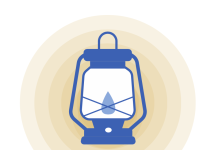Peter Crump
Activision Blizzard Inc., a video game holdings company and the product of a merger between video game publishers Activision and Vivendi in 2008, has decided to sever the link and buy out Vivendi’s majority stake in the company for $8.2 billion. In effect, Activision is buying itself out, a potentially risky move with the release of two major video games consoles just around the corner.
In the initial merger of the two companies, which took place during 2007 and was finalized the next year, Vivendi had about a 61 percent stake in the newly formed Activision Blizzard, according to Joystiq. However, it was Activision CEO Bobby Kotick who took the reigns as head of the company. Blizzard Entertainment, another video game company owned by Vivendi, was the namesake for the “Blizzard” in Activision Blizzard.
This past July, Activision Blizzard announced a buyout of 429 million of Vivendi’s shares in the company, totaling about $5.83 billion. In addition, Kotick and Activision Blizzard chairman Brian Kelly, among other investors, purchased 172 million shares totaling about $2.34 billion, adding to a total purchase of $8.2 billion and altogether diluting Vivendi’s stake in Activision Blizzard from 61 percent down to just 12 percent. The buyout was approved after originally being halted by the Delaware Supreme Court on Oct. 11. Both Kotick and Kelly will retain their respective positions in the company. However, a number of Vivendi’s representatives on the Activision board will be stepping down, The Guardian reports. Despite this, the company’s name will remain unchanged.
Why the split in the first place? According to The Guardian, Vivendi had somewhere in the range of $17 billion in debt and had been trying to rid itself of its large portion of shares in the company in the weeks leading up to the buyout in July. The solution, as it turns out, came from within the company itself. Activision provided an avenue of relief to buoy Vivendi’s sinking financial state and they took the bait for $8.2 billion.
But it wasn’t just Vivendi that had something to gain from the buyout. Joystiq quoted Kotick as saying that the “transactions” as he called them, would be a “tremendous opportunity for Activision Blizzard,” as well as for Vivendi. He also stressed that after the buyout, Activision Blizzard would now be an “independent company…that will expand [its] leadership position as one of the world’s most important entertainment companies.” With Vivendi no longer having a majority stake in the company, most of the shares are now in the hands of the public, and Activision Blizzard will have more control over games that it publishes. For example, Businessweek reported that Activision will now be able to expand into foreign markets such as China that would not have been possible with Vivendi owning a majority of the company. The buyout doesn’t come without costs for Activision, however. The Guardian reported that Activision used $4.6 billion in debt financing for the purchase and now has a net debt of $1.4 billion.
These are some big changes happening at the corporate level, but what does this really mean for the consumer? Activations’ weight in the gaming world is undeniable. It has published wildly popular titles such as the “Call of Duty” series and “World of Warcraft.” With such a successful history, there is definite pressure on the company to succeed, especially with the Xbox One and the Playstation 4 just around the corner, and the Wii U already on the market. Now that Activision is no longer restrained by Vivendi, they are in a position to reap potentially massive benefits from what’s shaping up to be a huge season for gaming. While Activision claims that the $1.4 billion in debt it incurred in this process is a “manageable and acceptable problem to have,” time will tell if their gamble will pay off.
















